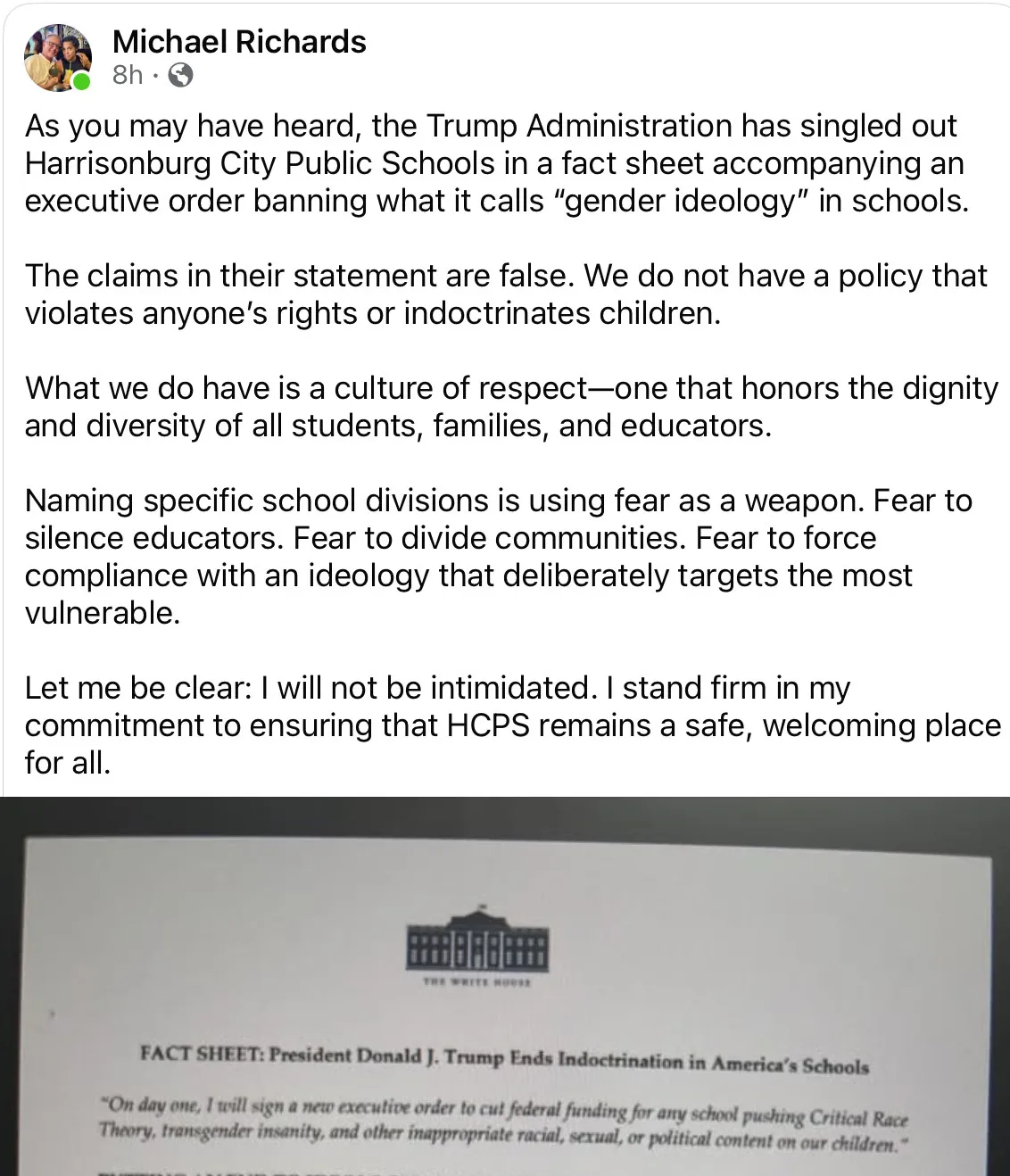School Systems Across US Refuse to Comply With Anti-Trans Executive Order
On Thursday, multiple school systems and representatives issued statements rejecting Trump’s executive order that directs schools to discriminate against transgender students or face legal consequences. The order, released Wednesday, labels transgender identity as an “anti-American ideology” and mandates discrimination in bathrooms and locker rooms while threatening teachers with criminal charges for supporting trans students’ social transitions. In response, school officials across the country are making it clear: they will not comply, and they remain committed to protecting the rights of their transgender students.
On Thursday, Julie Yang, President of the Montgomery County Board of Education in Maryland, issued a forceful response to Trump’s executive order in a mass email to families. Representing a school district of 160,000 students, Yang affirmed that Montgomery County would continue to recognize gender identity as a protected characteristic. “We stand by our community and school system values, which include learning, relationships, respect, excellence, and equity. They guide us every day and anchor us when navigating difficult times. We intend to use all legal means necessary to uphold them… We are committed to maintaining local authority over our curriculum, teaching, and learning. And we will fiercely support our teachers and staff as they implement our curriculum and policies.”
Harrisonburg City Public Schools Superintendent Michael Richards also issued a strong response to Trump’s executive order. The district was one of three specifically named in the order for its policies supporting transgender students. In his statement, Richards pushed back forcefully, saying, “The claims in their statement are false. We do not have a policy that violates anyone’s rights or indoctrinates children. What we do have is a culture of respect — one that honors the dignity and diversity of all students, families, and educators.”

San Francisco Unified School District also responded to Trump’s executive order, affirming that it would continue to embrace its diversity as a core strength. “This includes our district’s trans-identified students and all of our LGBTQ+ students and families,” the statement read. The district made clear that its core values would not change, emphasizing its commitment to supporting all students’ rights, including “addressing students using the name and pronoun that reflects who they are” and “providing access to school activities, spaces such as locker rooms and restrooms, and gender-neutral dress codes that fit with their gender identity.”
Superintendent John Thein, in an email to parents of the St. Paul Public Schools district, reaffirmed the district’s commitment to “respect, affirm, and welcome all students, staff, and family members.” He emphasized that the district would continue supporting students regardless of their minority status, explicitly including gender identity and sexual orientation. Thein closed the message with a quote from Martin Luther King Jr., underscoring the district’s stance on equity and inclusion.
Columbus City Public Schools in Ohio — a state that had already heavily targeted transgender students before Trump’s executive orders — delivered its own fierce message of resistance. In an interview with the Columbus Dispatch, Michael Cole, president of the school district, called Trump’s order a challenge and defiantly stated, “Bring it on.” He emphasized that the district has a “strong infrastructure in place” to support its students. Meanwhile, Scott DiMauro, president of the Ohio Education Association, condemned the order as an attempt to “instill fear and sow division in a way that is intended to try to stop educators from teaching the truth.”
As Trump’s executive orders take effect, the greatest immediate threat isn’t their legality — it’s premature compliance before they can be challenged in court. Most of these orders function more as legal intimidation tactics than enforceable law, relying on the chilling effect of DOJ threats to pressure hospitals, teachers, and institutions into abandoning transgender people before the legal process even begins. But resistance is already mounting. These school districts, and others, recognize the stakes and are refusing to fold, standing firm in their commitment to protect transgender students — students who lack the institutional power to fight back on their own against an administration determined to erase them.
This piece was republished with permission from Erin In The Morning.